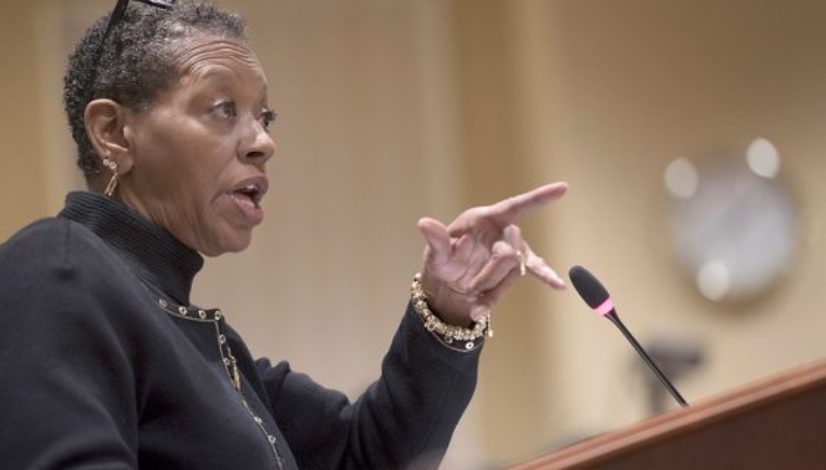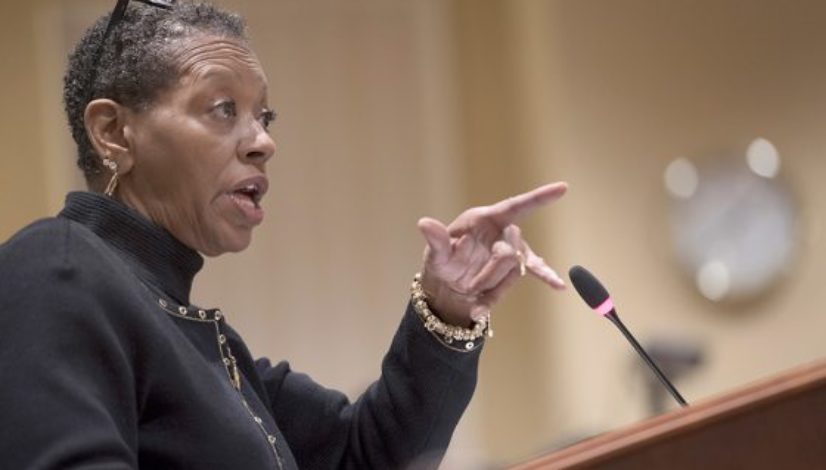Maryland eyes recreational marijuana bill while still embroiled over medical cannabis program

Published: Mar 6, 2017, 8:07 am • Updated: Mar 6, 2017, 9:31 am
By Fenit Nirappi, The Washington Post
Legalization of recreational marijuana is getting a full airing in the Maryland legislature this week, even as the main proponents of allowing adults to legally smoke pot acknowledge there’s little chance of passage this year.
Lawmakers and advocates pushing to authorize sales of the drug for general use believe that a robust debate this year will put them in a good position for next year’s legislative session, when they are planning an all-out effort to get the Democratic-majority General Assembly to either legalize the drug or approve putting the issue to voters as a ballot question.
The legislature is also wrestling with several bills relating to Maryland’s sputtering medical marijuana program, which has become embroiled in controversies over who state regulators chose and rejected to grow and sell the drug.
The Maryland Medical Cannabis Commission last year awarded 15 preliminary licenses to grow, and 15 to process, medical marijuana, as well as 102 approvals to companies vying to sell the product. Businesses are on track to start selling medical cannabis by late summer, pending final inspections.
Related stories
- Maryland lawmaker, chastised by ethics committee, apologizes for not revealing marijuana biz ties
- Questions of politics continue to swirl around Maryland medical marijuana license distribution
- Maryland medical marijuana: Black lawmakers push for diversity
- Maryland lawmakers will introduce marijuana legalization bills this week
- Bringing in an outside lawyer is ‘very, very unusual.’ But that’s what’s happening in Maryland over MMJ drama
But the Legislative Black Caucus of Maryland, angered that no preapproved marijuana growing company is led by African Americans, is leading a charge to dissolve the cannabis commission and restart the process to add more minority-owned companies.
“On a nation that was built on the backs of black folks, I just don’t see how we can, as a progressive state, stand here and tolerate the current conditions,” state Sen. Joan Carter Conway, D-Baltimore, one of the sponsors of the Black Caucus legislation, said Thursday at a Senate hearing.
Cannabis regulators said that when they awarded the licenses, they wanted to follow a provision in the 2014 medical marijuana legalization law calling for racially and ethnically diverse pot growers. But, they said, they were hamstrung by a letter from the attorney general’s office suggesting that racial preferences would be unconstitutional absent a study showing disparities in the industry to justify the move.
The regulators also cited the results of a survey of their preapproved marijuana companies showing there are minority investors and employees.
“Has the commission engaged in some nefarious racist misconduct in the outcome of the process? I don’t think we have,” said Commissioner Eric Sterling.
At hearings last week, lawmakers grilled members of the commission on why they did not try harder to find alternative ways to take racial diversity into account.
“We are in this awful dilemma where you didn’t follow the law, and we have people who need relief,” state Sen. James Brochin, D-Baltimore County, told Sterling.
Even the lawmaker who requested the legal opinion on racial preferences in medical marijuana from the attorney general’s office – Del. Christopher R. West, R-Baltimore County, – demanded to know why regulators had not returned to lawmakers earlier to sort out the confusion.
“The fact is we didn’t, so what’s the next question?” snapped Commissioner Dario J. Broccolino, the state’s attorney for Howard County, prompting gasps from the audience.
Black Caucus leaders say they are negotiating changes to their diversity bills after the hearings. The legislation is set to come up for a vote in the coming weeks.
Other proposed bills would expand the number of approved medical marijuana growers, while another would grant licenses to two prospective growers suing the cannabis commission because they were passed over in favor of lower-scoring applications in the name of geographic diversity.
The companies already slotted to grow and process medical marijuana in the state are fighting such efforts to expand the market. They formed a group called the Maryland Wholesale Medical Cannabis Trade Association, hired a lobbying firm and told lawmakers that they secured investments and drafted business plans based on the idea that they would have the early foothold in the industry.
“We as a group here all received As on the test,” said Jake Van Wingerden, president of Cecil County’s SunMed Growers and a member of the new trade group. “There are a lot of people who didn’t receive an A who are complaining about the administration of the test and maybe the administration that hired the professors.”
Sen. Robert A. Zirkin, D-Baltimore County, who chairs the Senate Judicial Proceedings Committee that must approve the medical marijuana bills, expressed concern that authorizing additional marijuana businesses would prompt more lawsuits from companies that, as a result of the change, would face increased competition. He repeatedly said his top priority was patient access.
“I want to see patients have this medication yesterday, not in a year, not in three years,” Zirkin said. “They’ve waited long enough.”
Several parents of children with medical disorders and veterans with amputated limbs also pleaded with lawmakers to not further delay the program. They included Carey Tilghman of Boonsboro, whose 6-year-old daughter had a stroke and 17-month-old has intractable epilepsy.
“I’m not trying to get my kid high as a kite. I’m trying to relieve her symptoms. Don’t delay. I cant wait anymore,” Tilghman told lawmakers as she held her sleeping toddler.
“We are not going to do anything to delay any part of this program, that I can assure you,” Zirkin told her.
While cannabis commissioners have not objected to lawmakers expanding the number of licenses, they are fighting bills that would restart the licensing process or dissolve and revise their agency.
“We’re on the 10-yard line, first and goal, and the sideline is telling us to punt the ball and start all over. That’s crazy,” Broccolino said.
While the fights over the medical marijuana program continue, committees in the House will consider bills to legalize recreational marijuana, while a Senate panel is examining a proposal to tax it like alcohol.
Sen. Richard S. Madaleno Jr., D-Montgomery, one of the sponsors of the legislation, says he does not expect his bills to pass this session because of uncertainty over how federal marijuana policy may change under President Donald Trump.
White House press secretary Sean Spicer said last month that states should expect “greater enforcement” of marijuana laws. The Justice Department has so far not interfered with legal recreational sales permitted in several states, but that may change under Attorney General Jeff Sessions.
Madaleno and other lawmakers behind the legalization push say they want to continue debating how marijuana sales would work in Maryland in preparation for future legislative sessions.
Sen. Brian J. Feldman, D-Montgomery, is offering an alternative measure to refer the matter to voters, as lawmakers did with same-sex marriage and casinos.
Some have speculated that adding marijuana legalization to the 2018 ballot could help turn out young and other Democratic-leaning voters when popular Republican Gov. Larry Hogan is up for reelection.
Fenit Nirappil covers politics and government in Maryland, Virginia and D.C. He previously covered the California statehouse and suburban government outside Portland, Ore. @FenitN
Topics: Maryland, Maryland Legislative Black Caucus, Maryland Medical Cannabis Commission, medical marijuana, recreational




